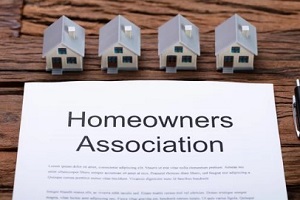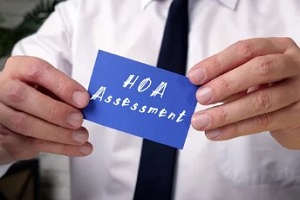 Homeowners associations (HOAs) provide the opportunity for residents to benefit from consistent standards of quality in their neighborhood. By paying annual dues to their association, homeowners can live in an area in which many public spaces are well-maintained, and their own homes look consistent, clean and well kept.
Homeowners associations (HOAs) provide the opportunity for residents to benefit from consistent standards of quality in their neighborhood. By paying annual dues to their association, homeowners can live in an area in which many public spaces are well-maintained, and their own homes look consistent, clean and well kept.
However, HOAs reserve the right to charge fees beyond their typical annual fees in certain situations, and homeowners may find themselves unprepared for these sudden expenses.
The following is what HOA residents should know about special assessments in California, including when they might arise, how much to plan for and how to fight against an assessment that is not fairly levied.
What Is an HOA Special Assessment in California?
An HOA special assessment is a right granted to the governing body of the homeowners association in the event that significant damage has befallen the community. The restrictive covenants of an HOA will describe the circumstances in which these extra fees may be charged.
Most commonly, unforeseen emergencies that require repairs beyond the HOA’s annual budget may prompt the board to collect additional funds to cover the remediation. For example, if a tornado damages the roof of the community structures in a neighborhood requiring repairs at an amount beyond the reserves, the board may levy a special assessment to collect the money required for repairs.
Even if a specific homeowner is not affected by the damage or repairs, they must still participate in the special assessment in California. A special assessment for an HOA is not the same as a special assessment tax, which operates under a similar principle—a local project such as road construction may be paid for by taxpayers. However, this type of taxation occurs whether or not a homeowner participates in an HOA.
Determining the Maximum Allowable Assessment
 When residents are considering how to plan for potential special assessments in the future, they often feel overwhelmed at the thought that they could be responsible for a significant bill without warning. However, California statute 5605 indicates that the assessment cannot exceed 5% of the budgeted gross expenses within that fiscal year.
When residents are considering how to plan for potential special assessments in the future, they often feel overwhelmed at the thought that they could be responsible for a significant bill without warning. However, California statute 5605 indicates that the assessment cannot exceed 5% of the budgeted gross expenses within that fiscal year.
If an HOA has a budget of $200,000, no more than $10,000 can be collected via special assessment—and this $10,000 is cumulative among all residents. Each resident would not receive a separate $10,000 bill. Homeowners are given a payment timeline in which to repay their owed amount, and it is not due immediately upon notice of the balance.
Certain circumstances allow the HOA to attempt to recoup an amount greater than 5%. In this case, the issue will come to a member vote. This preserves the rights of the residents to fight against undue charges.
Challenging an Assessment Charge in California
Most HOA special assessments are only conducted when emergencies occur, such as natural disasters. However, some HOAs may attempt to unjustly assess a special fee that does not qualify as an emergency cost, or they may do so in a manner that does not comply with state regulations in California. In these instances, legal action may be taken against the HOA with the assistance of an attorney.
The most common issue that arises in special assessment cases is when homeowners believe that the amount being collected is not representative of the true cost of the repairs. In this situation, the burden of proof of the true cash value of the alleged repairs is on the homeowner, who typically has between 10 and 30 days to appeal the assessment.
Formally challenging the assessment may result in the case being taken to court, where homeowners are responsible for legal fees if the court finds the assessment reasonable. This is why it is wise to partner with a legal professional who can assist in bringing a compelling case to court.
 Another reason why homeowners may fight against a special assessment is when it has been levied incorrectly. For instance, a special assessment cannot be used to recover the cost of personal property damage; instead, real estate damage is the only eligible category.
Another reason why homeowners may fight against a special assessment is when it has been levied incorrectly. For instance, a special assessment cannot be used to recover the cost of personal property damage; instead, real estate damage is the only eligible category.
Those who choose not to pay the assessment could be responsible for additional late fees, see their community rights restricted, or even have a lien attached to their property within the HOA.
Work with a Legal Team to Protect Your Rights
HOA special assessments are legal as part of the covenants, conditions and restrictions that make up the contract with the HOA board. However, the board may not properly conduct an assessment, and homeowners can take legal action to avoid the financial repercussions of these mistakes.
The attorneys at Lehr Law help homeowners face the challenges of protecting their rights within an HOA. Contact us to schedule a consultation to discuss your case and create a strategy to combat unjust special assessments.
